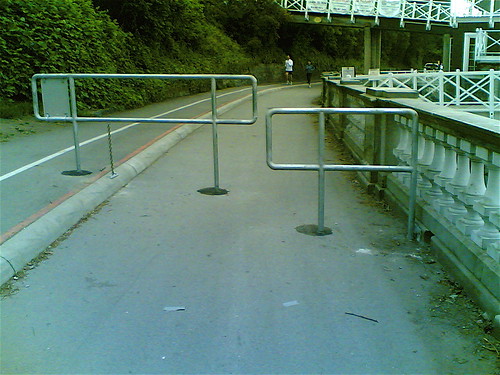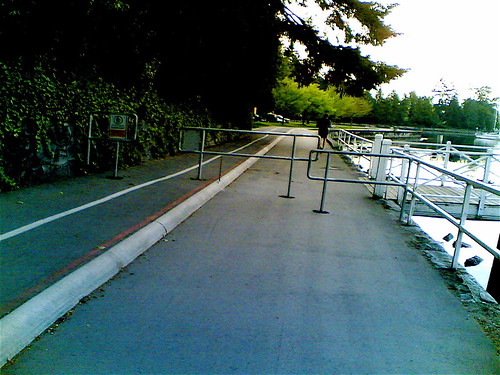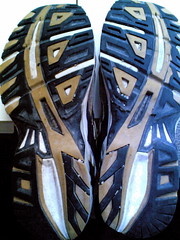 Actually, it’s more like I have a shin splint[wiki], just in my left calf. It’s been with me for about a week, but the ache won’t go away. You tend to do the stupid thing and just consider it a tired muscle, but I’ve taken the last few days off from my routes.
Actually, it’s more like I have a shin splint[wiki], just in my left calf. It’s been with me for about a week, but the ache won’t go away. You tend to do the stupid thing and just consider it a tired muscle, but I’ve taken the last few days off from my routes.
Rebecca set to the Google this morning and found that you should replace your running shoes every four hundred miles. I’ve often considered the every six months rule, so we did a little math.
I’ve had these current pair of shoes since my birthday, last September, but started using them in November. That makes it about eight months, so there’s strike one. Taking an average of running 10k for each day that I run, which is about three times a week, the roundabout total number of miles in this pair of runners is 600. Strike two.
Working the Google some more, I found this really good page about shin splints and running.
What Are They
Shin splints is a common term used for a half a dozen lower leg problems ranging from nerve irritations to tendonitis to stress fractures. The most common type that is experienced involves the tearing away of the muscle tissue that attaches to the front of the lower leg. The beginner runner and the runner that resumes training after a long lay off are most susceptible to this injury. The connective sheath attached to the muscles and bone of the lower leg become irritated, resulting in a razor-sharp pain in the lower leg along the inside of the tibia or shin bone. Shin splints can be felt anywhere from just below the knee down to the ankle. The pain may diminish after warming up but then returns a few minutes after the completion of a workout.
How Are They Caused
There can be several causes for shin splints. Only when possible causes are identified can shin splints be eliminated.
Possible causes include:
– Tight Achilles and calf muscles.
– An inexperienced runner just beginning to run.
– Running on uneven terrain.
– A sudden increase in faster running (speed work).
– A sudden change from soft to hard running surfaces.
– Running in worn down shoes.
– Excessive uphill running.
– Poor running mechanics which include excessive forward lean, excessive weight on the ball of the foot, running with toes pointed outward, landing too far back on the heels causing the foot to flap down, and overpronation. There is a drill that I do with my runners at Selah High School called silent running. I have them run on the track as quiet as possible. With the feet landing properly very little noise should be heard. Of all of the possible causes, pronation is the most likely to be overlooked, as it was for me in high school.
Strike three. I’ve got the worn down shoes combined with uphill running. I tend to pay a lot of attention to my mechanics, making sure that I take care of my knees in the long run. I’ve got the “silent running” thing down pretty well because I know that I’ve scared my share of people when I run up behind them and pass.
Getting new shoes is on the list of things to do very soon, but I’ll have to let this heal a little bit before getting back on the routes in full capacity. It’s not horrible as much as it’s just an annoying pain to have. Stretching and massage only does so much. Time is the only, real cure, but there are some other things I’ll try in the meantime.
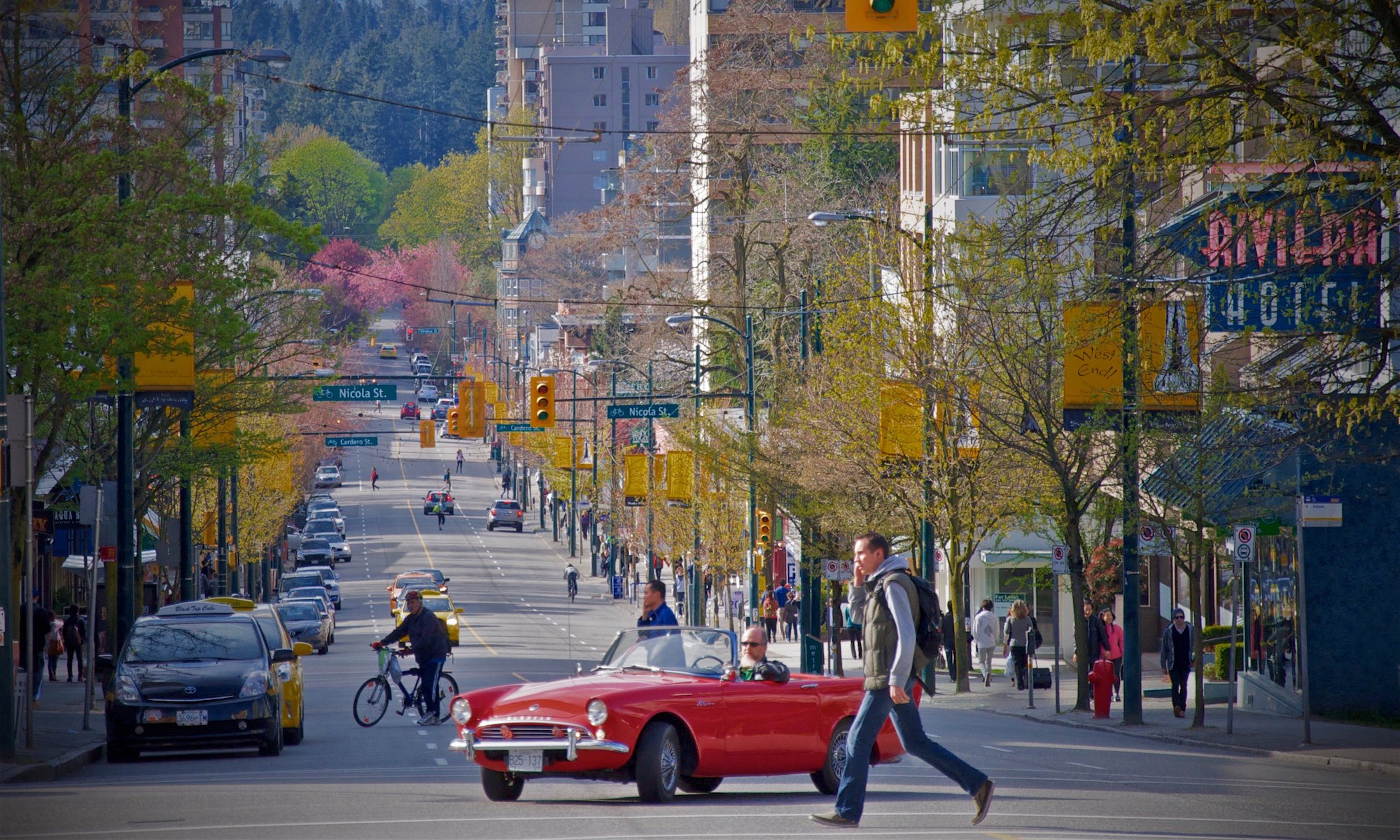

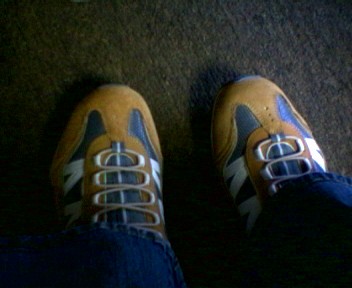 I’m jealous. She got these for bike riding. With
I’m jealous. She got these for bike riding. With 
